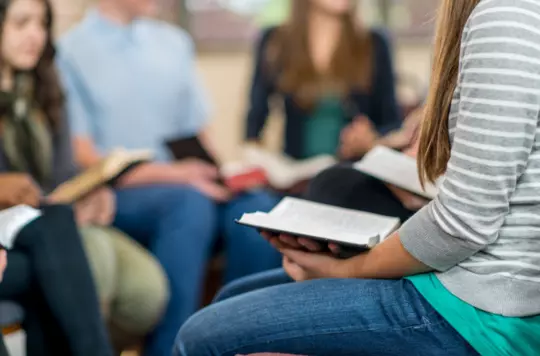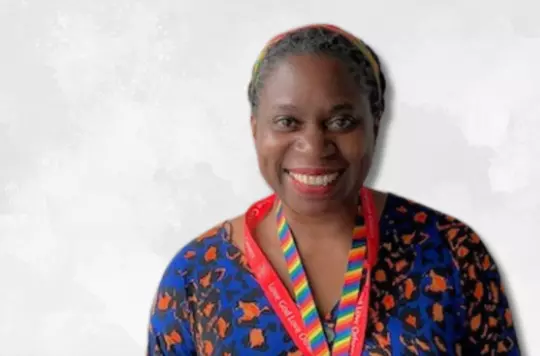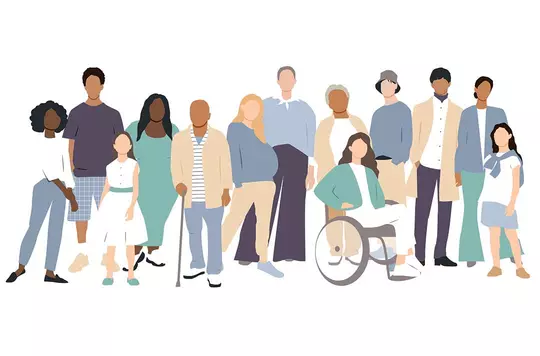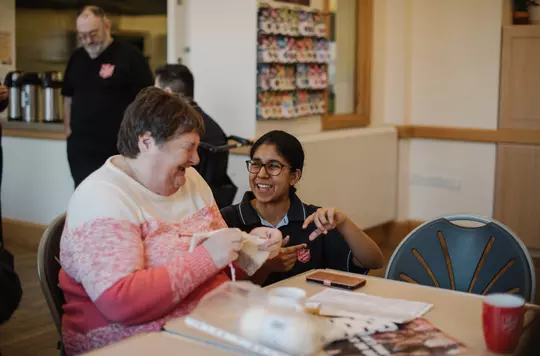25 May 2024
Masic: In good disagreement

Bethany Gibson (Regent Hall) and Major David Cavanagh (THQ) discuss living with difference as members of the Moral and Social Issues Council.
How did your friendship begin?
David Beth and I are both on the Moral and Social Issues Council (Masic) as well as in the Membership Working Group, which deals with complicated topics like sexuality. We had a difficult conversation during one Membership Working Group session and it was clear we held differing views. At the end of that day, we took time to check in with each other and ended up hugging. From then on we’ve been good friends, despite holding different views.
Beth It was beautiful! Despite having a difficult conversation, we were able to have that moment. We both expressed sadness that, as humans, it’s often hard to recognise we think differently. We’re not always on the same page and understanding is tricky.
David I have to admit, when we first met I found Beth a bit irritating. I think we’re now good friends because we’ve been through that difficult conversation – we entered into it rather than keeping each other at arm’s length.
Beth We were in the same room and we had time to talk. Verbalising that we think differently broke the ice – the tension was released. We’ve got some meetings coming up, and it’ll be good to talk more.
David Yes, I’m looking forward to that!
How do you approach conversations about topics you disagree on?
Beth If you asked me 10 years ago, my aim would have been to convert people to think the same as me. Now, I realise there needs to be humility, because I’m not God! Part of the beauty of following Jesus is that we’re not meant to do it alone, but in community. David and I might start a conversation within Masic and – now we know and trust one another – continue it outside of that, because we’re interested by what each other is saying. David might have something I can learn from. My view of God is not complete, so it can always be enlarged by someone else.
David Yes. I recognise that I’m not God and I might be mistaken, that Beth’s perspective might have some insight to offer. Many conversations become binary constructs with discussion around two opposing poles. In reality, God’s truth may be in the middle. We have to hold convictions provisionally and be prepared to explore and engage with the people in front of us, rather than seeing them as representatives of polarised views.
Beth Getting to know someone’s story can help you understand why there’s difference. That’s not to say it’s easy. Judgements and labels can be batted around. But, once emotions have died down, we need follow-up conversations to check in. Being ready to apologise and say ‘my emotions got the better of me’ is important. Justice and reconciliation can’t happen unless we’re ready to admit the times we get things wrong.
David It’s important to remember that there’s far more that unites us than divides us. We’re both passionate, committed followers of Jesus who want people to find fullness of life. We might differ on how that translates into some concrete situations but, fundamentally, we’re in agreement. We need confidence in God’s truth. God doesn’t need me defending the truth. God is perfectly capable of doing that himself. Let God be God and trust God to be God and ultimately open the way that’s right.
Why is it important for Christians to learn to live with difference?
Beth Because fullness of life with Jesus is fullness of life with other people.
David We might wish there wasn’t disagreement, but there is, and it’s better to be in good disagreement than toxic disagreement.
Beth Yes, and there’s nuance to what that looks like in practice.
David I agree. Good disagreement cannot be at the expense of other people. People not directly involved with a subject can often be the most vocal. While I might personally disagree with an underlying proposition, I nevertheless acknowledge and recognise people’s pain. As somebody who’s privileged, how can I help reduce that pain and find a way in which that person is comfortable with living with the difference from me?
Discover more

Helping Salvationists engage in moral and social issues in their communities.

Equality and Diversity Manager Jennifer Laurent-Smart (THQ) talks about creating an environment where everyone can flourish.

Lieut-Colonel Karen Shakespeare considers how harmony reveals the richness of God’s Kingdom.

Secretary for Mission Lieut-Colonel Drew McCombe tells Salvationist about the territory’s new research into membership.